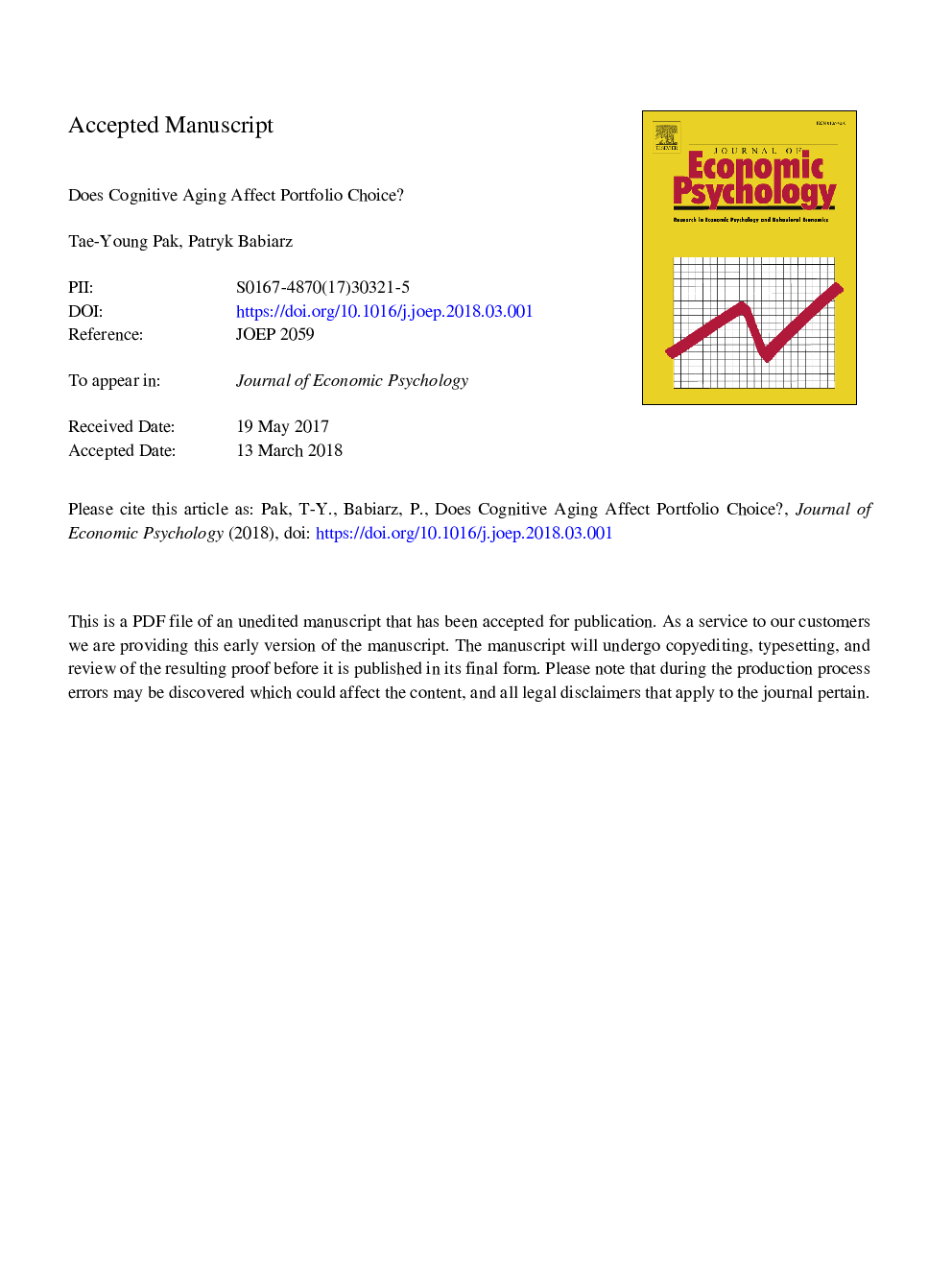| Article ID | Journal | Published Year | Pages | File Type |
|---|---|---|---|---|
| 7243976 | Journal of Economic Psychology | 2018 | 31 Pages |
Abstract
The association between cognitive aging and portfolio reallocation towards riskless assets is well documented. Past studies have suggested several mechanisms such as rising information costs or preference changes to explain the shift away from financial risk. However, these narratives appear to be at odds with the evidence that some domains of cognitive functions improve with age, and many individuals are not cognizant of their intellectual decline. Using data from the Health and Retirement Study, this study examines whether or not cognitive decline leads to a safer portfolio choice and how much can be attributed to causal. Our empirical analysis develops an instrumental variable approach that exploits seasonal variation in cognition triggered by a seasonal affective disorder. While the fixed effects estimates show strong positive correlations between cognition and stock ownership, these estimates lose significance in the instrumental variable models. Our findings suggest that cognitive function is not a major determinant of portfolio riskiness.
Related Topics
Social Sciences and Humanities
Business, Management and Accounting
Marketing
Authors
Tae-Young Pak, Patryk Babiarz,
